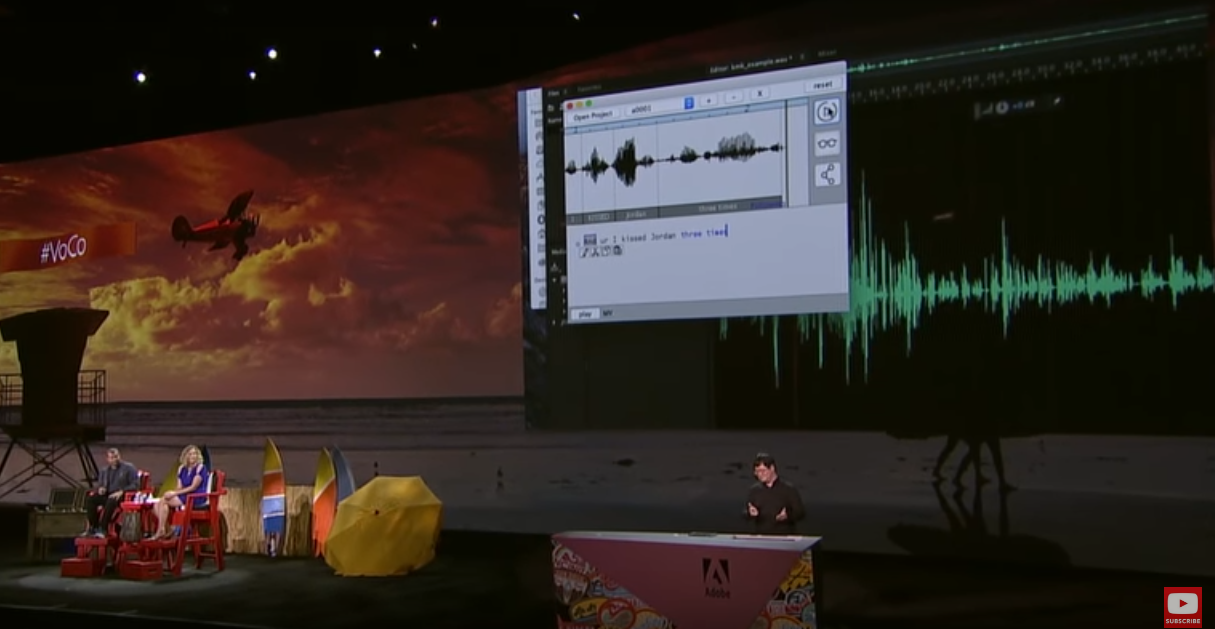Believe it or not, photoshopping voices is a thing – although not now, but will be in the future. Don’t believe us? Here’s proof:
So Adobe suddenly decides that altering images, videos, and their current creative suite are not enough. They have now introduced a way for us to alter the things we say. Adobe calls this “Project VoCo.”
Project VoCo is a software that will allow users to edit speech into text.
It transcribes speech into text, then the user can edit the text to modify the audio based on the existing audio sample the software has. Project VoCo only needs 20 minutes of voice samples. It then analyzes the voice sample and breaks it down into phonemes. This software can generate entirely new words using the speaker’s voice. As an effect, it makes it seem like the speaker said those words when in fact it was never mentioned in the voice samples. This is definitely Text-to-human speech at its finest.
This revolutionary software has so many potential applications. Having the ability to generate unlimited sentences using voice samples, one can produce unlimited audio recordings. This can be extremely useful for audio books, podcasts, and other similar multimedia. Editing work can be less painful as most audio editors need to take out fillers (ums, ahs) when producing professional voiceovers. We can look at it as a makeover to how we used to edit audio but a hundred times better. Imagine getting a voiceover artist talk for 20 minutes, and you can end up with a complete audio book. Better yet, use celebrity voices to make dedicated greetings and so on. Although, there might be noticeable differences in emotion and tone, but that can be remedied by purposefully changing the text or adding extra touches to the waveform.
An amazing technology, but with “potentially” disastrous consequences.
If this software comes out commercially, this will make it difficult to trust recordings. Adobe has demonstrated how easy it is to alter voice recordings. For someone who works in criminal investigations, it poses challenges in dealing with recorded voice evidence. People can also make up entire calls using someone else’s voice and send them out.
If we are thinking about the ways this software can be used criminally, there’s a lot that can be said. We can only hope for the best and that there will be sufficient measures in place when Adobe decides to release this product in the market.
Adobe did promise that they are working on solutions to avoid forgery. According to Adobe, they have ways to detect if a recording was tampered with. Users should be able to tell if a recording is fake or edited in VoCo. Safe to say, you can hold on to your voice activated devices without any problems for now.
Want to improve your website’s accessibility? Reach more audience by voice-enabling your site. Try ReponsiveVoice’s Text-to-speech!



